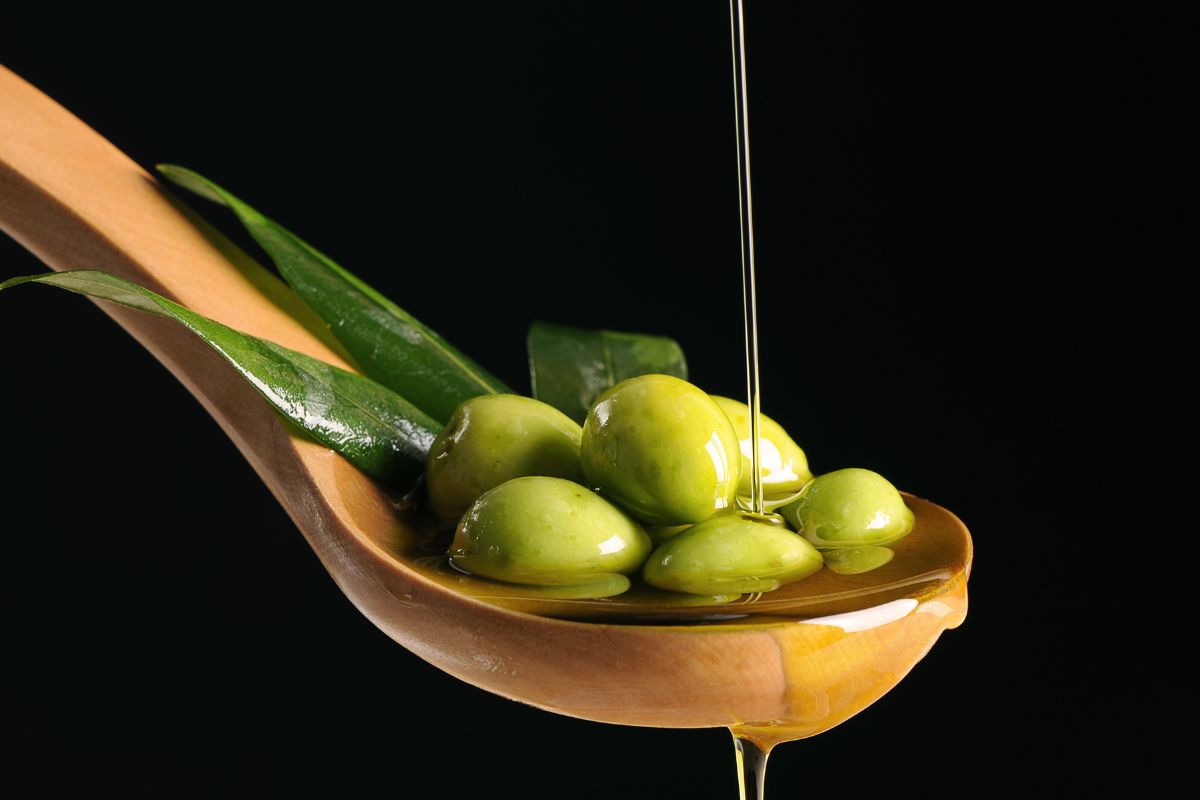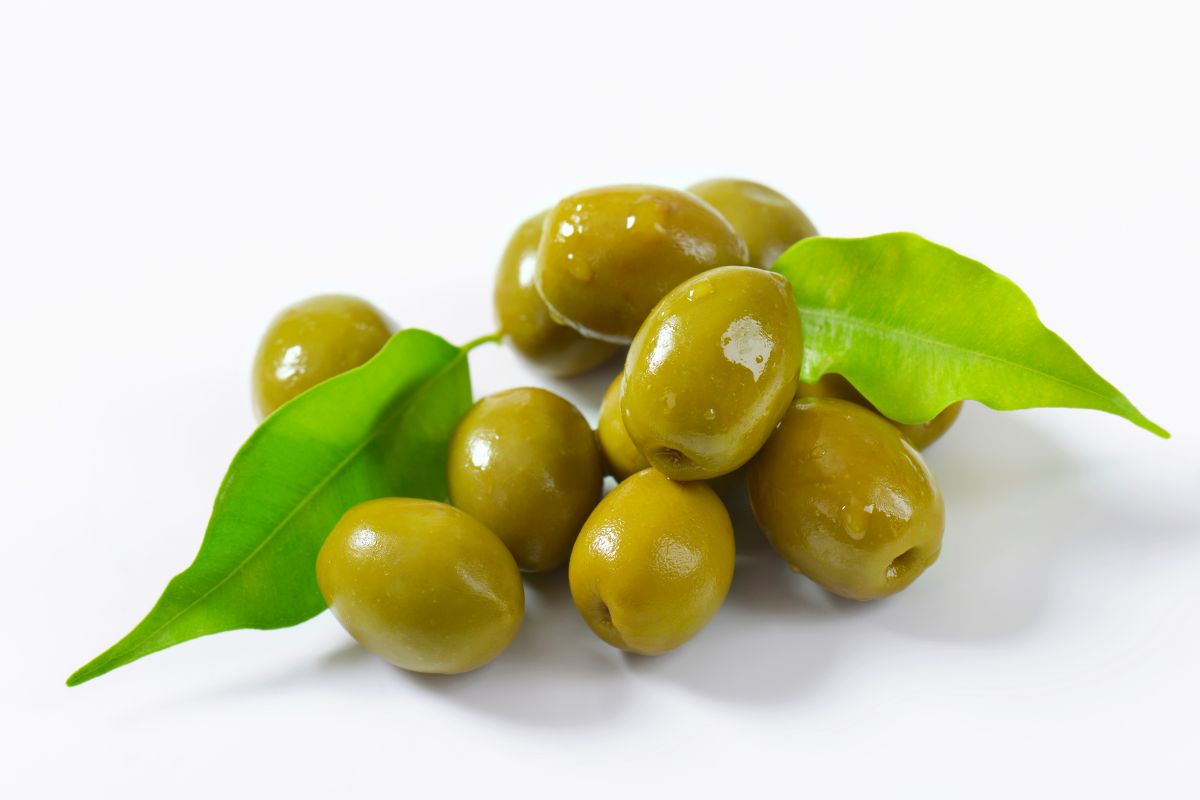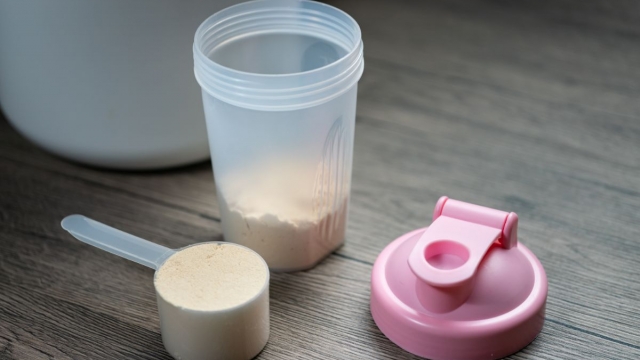Is Olive Juice Good For You?
Olive juice is a highly popular beverage in Mediterranean countries, but is it a healthy option?
Though it might seem somewhat unconventional outside the Mediterranean, there are plenty of health benefits to be had with olive juice.
In this article, we are going to be looking at olive juice more closely to examine whether it is a choice of juice that can be considered healthy and good for you.
Let’s get started.
What Is Olive Juice?
Olive juice is a liquid made from olives that are typically picked when they are ripe before they are pressed to extract their juice.
The juice is usually a cloudy green or yellow color and has a distinct, slightly bitter taste.
It is not the same as olive oil, which is made by pressing olives and then separating the oil from the water and solids.
Olive juice can be consumed as is or used as an ingredient in cooking and baking, as well as in cocktails
Is Olive Juice Healthy?
Olive juice, like olives themselves, can be a healthy addition to a balanced diet.
The juice is a source of monounsaturated fats, which have been associated with a reduced risk of heart disease.
It is also a good source of antioxidants, particularly polyphenols, which can help protect the body against damage from free radicals.
It also has anti-inflammatory properties, which may be beneficial for conditions such as osteoarthritis.
However, it’s important to note that olive juice is not the same as olive oil, and the nutritional content may differ.
Additionally, some varieties of olive juice may be processed or contain added salt or preservatives, which can negatively impact its health benefits.
Also, as it can be high in sodium, so be aware when adding it to a diet for people with hypertension.
It is best to choose a high-quality, fresh, and natural olive fruit juice, without any added ingredients, and to consume it in moderation as part of a balanced diet.
The Benefits Of Olive Juice

Let’s take a closer look at some of the aforementioned benefits of olive juice.
- Heart Health: Olive juice is a source of monounsaturated fats, which have been associated with a reduced risk of heart disease. The polyphenols present in the juice also have a cardio-protective effect.
- Anti-Inflammatory Properties: Olive juice is rich in polyphenols, which have anti-inflammatory properties. This can help to reduce inflammation in the body and may be beneficial for conditions such as osteoarthritis.
- Weight Management: As olive juice is low in calories, it can be a good option for those who are watching their weight when consumed in moderation.
- Antioxidant Properties: Olive juice is high in antioxidants, which can help protect the body against damage from free radicals.
- Nutritional Value: This juice contains vitamins and minerals that are essential to maintaining good health, including vitamins E and K, and minerals such as iron, etc.
- Digestive Health: Olive juice contains beneficial bacteria that can help to improve gut health, support digestion, and boost the immune system.
The Possible Health Risks Of Olive Juice
It is always important to know the negatives as well as the positives with any food or beverage that you might be considering incorporating into your daily life, so let’s have a look at some of the negative elements of olive juice when consumed in excess.
- Sodium Content: Some varieties of olive juice may be high in sodium, which can be a concern for people with hypertension.
- High sodium intake can also raise blood pressure and cause water retention, so it is important to choose a brand with lower sodium content or make your own juice.
- Processing and Additives: Certain brands of olive juice will be processed or contain added salt- as mentioned- or preservatives, which can negatively impact its health benefits.
- Allergic Reactions: Those who are allergic to olives are likely to suffer an allergic reaction if they drink olive juice, such as hives, itching, or difficulty breathing.
- Interaction with Medications: Olive juice contains a compound called oleuropein, which can interact with certain medications, such as blood thinners.
- It’s important to talk to a doctor if you take any medications and want to consume olive juice.
- Interaction with Some Medical Conditions: People with a history of gallstones or those who are prone to form them, should be cautious with the consumption of olive juice, as the high levels of oleic acid may stimulate the production of bile and cause pain. It is always worth noting that individual nutritional needs can vary, and it is always best to consult a healthcare professional to see how to include the juice into your diet, as well as how to go about incorporating it healthily.
Explore Also:
Creativehouseblog
Dietsheriff
Gigasecurehome
Final Thoughts
Overall, olive juice can be a healthy addition to a balanced diet when consumed in moderation.
The juice is a source of monounsaturated fats, which have been associated with a reduced risk of heart disease.
It is also a good source of antioxidants, particularly polyphenols, which can help protect the body against damage from free radicals, and it has anti-inflammatory properties.
However, it is important to be mindful of the source and quality of the juice you consume.
Not all olive juice is created equal, and some varieties may be processed or contain added salt or preservatives, which can negatively impact its health benefits.
It’s best to choose a high-quality, natural olive juice made with fresh olives and without any additives.
Additionally, if you are on a high-sodium diet, or suffer from hypertension, it would be important to monitor the sodium content of the juice.
In moderation, though, olive juice can be an excellent and healthy beverage!







